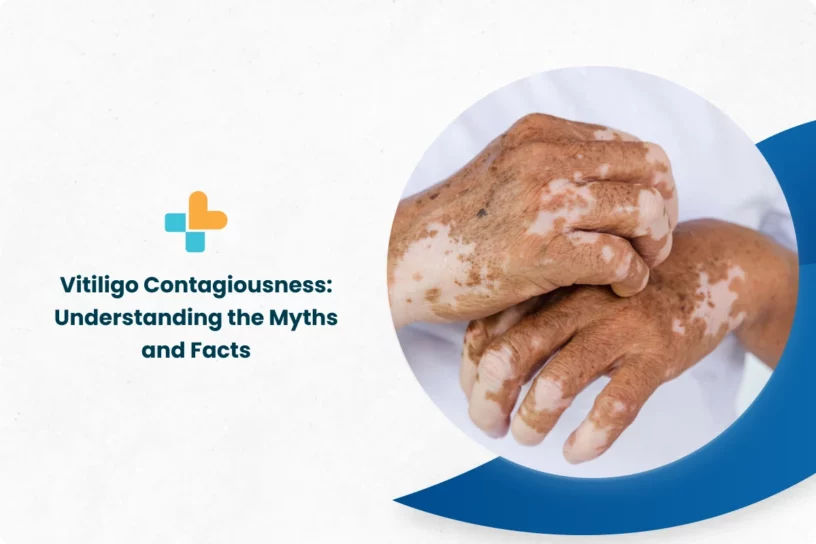Vitiligo is a skin condition that affects millions of people worldwide, characterized by the loss of pigment in the skin, leading to white patches or spots. Unfortunately, many misconceptions exist about the condition, with one of the most common being whether or not it is contagious.
In this blog, we will examine the facts and myths surrounding vitiligo contagiousness. We will explore the causes of vitiligo, how it is diagnosed, and most importantly, whether or not it is contagious. Understanding these facts is essential to reduce the stigma and misinformation that often surround this skin condition.
Myth: Vitiligo is contagious and can be spread through contact with an affected person.
Fact: Vitiligo is not contagious and cannot be spread through contact with an affected person. It is an autoimmune disorder that occurs when the immune system attacks and destroys melanocytes, the cells that produce pigment in the skin.
Myth: Vitiligo is caused by poor hygiene or nutritional deficiencies.
Fact: The exact cause of vitiligo is not known, but it is believed to be an autoimmune disorder with genetic and environmental factors. It is not caused by poor hygiene or nutritional deficiencies.
Myth: Vitiligo only affects people with dark skin.
Fact: Vitiligo can affect people of all skin types, including those with light skin. However, it may be more noticeable in people with darker skin due to the contrast between the white patches and the surrounding skin.
Myth: Vitiligo is untreatable and cannot be managed.
Fact: While there is no cure for vitiligo, there are treatments available that can help manage the symptoms and improve the appearance of the skin. Treatment options include topical creams, light therapy, and in some cases, surgical procedures.
Myth: People with vitiligo are unattractive or abnormal.
Fact: Vitiligo does not affect a person’s physical health, and it is not a sign of abnormality or unattractiveness. People with vitiligo can lead healthy and fulfilling lives, and it is important to reduce the stigma and misinformation surrounding this condition.
Also Read : Which Vitamin Deficiency Causes White Spots on Skin
Conclusion
In conclusion, vitiligo is not a contagious condition, and it does not affect a person’s physical health. While there is no cure for vitiligo, there are treatments available that can help manage the symptoms and improve the appearance of the skin. It is important to seek medical attention if you suspect that you may have vitiligo and to be aware of the facts and myths surrounding this condition. Understanding these facts can help reduce the stigma and misinformation surrounding vitiligo and support those affected by this condition.
It is important to seek medical attention and receive proper treatment to manage this condition effectively. Contact Ayu Health today to learn more about their services and how they can help you manage your vitiligo. With the right support and resources, people with vitiligo can lead healthy and fulfilling lives.
Our Hospital Locations
General Surgery Hospitals in Chandigarh | General Surgery Hospitals in Bangalore | General Surgery Hospitals in Jaipur | General Surgery Hospitals in NCR | General Surgery Hospitals in Hyderabad
Our Doctors
General Surgery Doctors in Chandigarh | General Surgery Doctors in Bangalore | General Surgery Doctors in Jaipur | General Surgery Doctors in NCR | General Surgery Doctors in Hyderabad
About the Author

Dr. Rachana Shilpakar
Dr. Rachana Shilpakar is a renowned Dermatologist currently practicing at Ayu Health, Bangalore.
Dr. Rachana Shilpakar is a dermatologist with over 12 years of experience in the field. She has experience in clinical & aesthetic dermatology & she is well versed with all procedures & lasers. She is specialized surgeon in Dermatology




